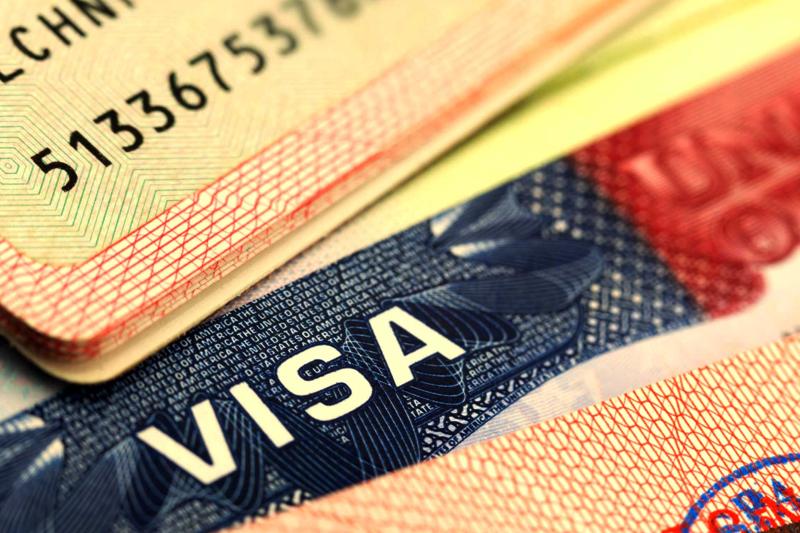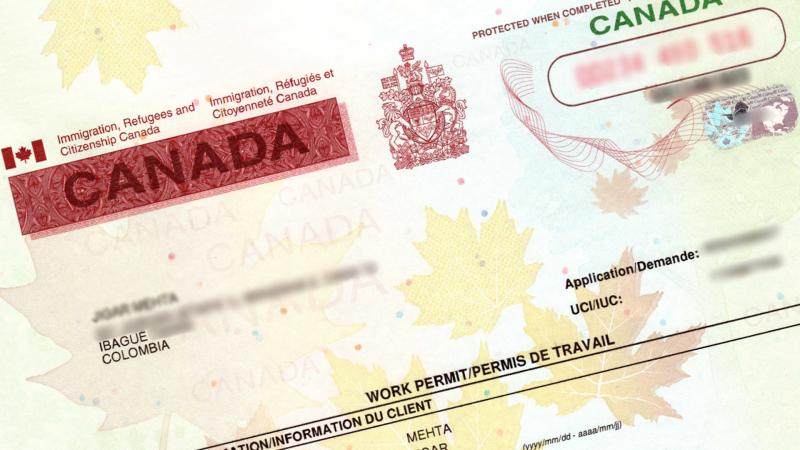A work visa is a job ticket that permits an individual to acquire a job in a different nation. If you are not from the United States and desire to obtain a job with a United States employer, you must understand how to apply for and acquire a visa. Knowing the kinds of visas obtainable and what the provisions are for everyone may assist in specifying which ticket or permit to seek. In this article, we examine working visas and explain ten distinct kinds of work visas and their provisions.
Note:
- A work visa is a ticket verifying a person from outside the United States is lawfully qualified to own a job in the U. S
- There are various kinds of visas, which has to do with temporary and permanent visas, and visas can also differ based on the causes for your employment in the United States.
- Many visa holders also apply for an Employment Authorization Document (EAD), which shows their qualifications to work in the nation lawfully.
Table of Contents
What is a Work Visa?
There is an assortment of visas depending on your work and if you intend to reside there permanently or for a short term. Understanding the distinct kinds of visas and their eligibility can assist you in knowing which is the most suitable for your intentions. A worker may require a job visa and an extra work permit that authorizes them to seek a profession in a particular nation.
10 Types of Work Visas
Below is a summary of ten various kinds of work visas, which includes temporary and permanent visas:
Temporary Worker Visas
A temporary worker visa awards you approval to remain in the United States for an appointed duration. The law needs you to leave the United States by the date that your visa lapses unless you decide to apply again and prolong the date. Temporary workers or the non-immigrant visas listed below permit workers to operate for a particular employer in the United States.
1. H-1B Specialty Employment
This is the most well-known kind of work visa in the United States and is obtainable to individuals from other nations who operate in specialty vocations such as computer science or engineering. Due to the increased request for this kind of visa, there is a yearly cap on provision. Aspirants who handle a bachelor’s degree or higher or possess a vocation offer from a United States employer in a specialty role may be eligible for this visa.
2. L-1 Visa
This kind of temporary worker visa is formed for workers who operate for international businesses that possess immediate cooperation with U.S. firms. A worker would apply for this kind of job visa if their institutions disseminated them to the United States region. Furthermore, this employment visa may be useful if an international firm transfers a worker to establish a United States branch. Workers who have worked for the global firm for one year within three years preliminary to going to the United States may be eligible. It is essential to understand that there are two classes for this kind of visa.
- L-1A: This includes supervisors and administrators transferred to the United States to work at or create a new U.S. site that may be qualified for an L-1 visa.
- L-1B: Workers below the administrative status may be eligible for an L-1B visa to operate for the firm in the United States. Suppose they have a specialty understanding of the business, its derivatives, and its procedures.
3. O-1 Visa
This temporary employment visa is for individuals who possess unique mastery within their area. To show that they are incredible at their vocations, these aspirants offer evidence that they are at the peak of their profession and known in the country or Internationally for their attainment. Individuals in business, entertainment, sciences, sports, arts, and education may be eligible for this visa. Workers who help unique employees, such as personal assistants and supervisors, may be eligible.
4. E-1 and E-2 Visas
This kind of visa permits individuals from specific nations to stay in the United States to execute trade exercises. Individuals can acquire an E-1 employment visa as a treaty marketer or an E-2 work visa as a treaty investor. Treaty marketers are those individuals from a nation with a trade consensus with the United States who execute ongoing trade exercises. Treaty investors have to do with those people who have invested a large sum of money into a United States business and can demonstrate they are coming to expand your business.
Should you find this piece engaging, we kindly invite you to explore the wealth of content in our other articles:
- Relocating to Canada as a Temporary Foreign Worker
- How to Relocate to Canada as a Wholesale Sales Specialist
- Ontario Minimum Wage Boost For ECE Beginning in 2024
- UK International Relocation Payments (IRP) for Non-UK Trainees & Teachers of Languages and Physics – How to Apply
- Top 10 Most In-Demand Jobs In The Greater Toronto Area In 2024
5. T.N. Visa
The North America Free Trade Agreement (NAFTA) established the T.N. work visa. This visa is for Mexican or Canadian inhabitants who desire to visit the United States to work for an employer. For one to be eligible, you indicate that you are inhabitants of one of these nations, possess an employment offer from a U.S. employer, and possess a role that makes you eligible under NAFTA. Some instances are lawyers, pharmacists, scientists, accountants, and engineers.
6. E-3 Visa
This visa applies only to international citizens from Australia with a specialty vocation, their partners, and children below the age of 21. A restricted number of these visas are provided annually, not including the partners and children of each aspirant. Provisions involve:
- A bachelor’s degree or an international equivalent.
- A unique mastery set is needed to replenish a specialty role.
- An employment offer from a U. S firm.
7. Seasonal Agricultural Employment Visa
Seasonal agricultural employment visas, known as H-2-A, are obtainable for international employees who desire to visit the United States to work on temporary or seasonal grounds when there is a depletion of domestic workers. These temporary visas can remain for one year each, with a three-year max. There is a list of Eighty-six eligible nations from which aspirants may journey.
Permanent (Immigrant) Visas
An employment-founded “preference immigrant” visa, described as a green card, is a kind of work visa provided to international citizens who intend to labor and reside in the United States permanently. In most situations, workers may apply for this employment after entering the United States. After obtaining a temporary residency permit, eligible immigrants can modify their level to permanent citizens.
8. EB-1 First Preference
You can apply for an EB-1 First Preference visa under three routes. For one each, the United States needs you to fulfill specific standards and file a plea via a worker. Below are the three kinds of EB-1 employment visas you can apply to obtain:
- Remarkable Ability: You can be qualified for this route if you can show remarkable capacities in the sciences, education, arts, athletics, or business.
- Tremendous Professors and Investigators: Below this route, the United States needs you to show international honor for attainments in an educational field and possess at least three years of experience in educating or experiments.
- Multinational Supervisors or Administrators: You can select this route if you intend to work as a supervisor or administrative for a foreign firm with a United States-founded location.
9. EB-2 Second Preference
You can be eligible for this employment visa if you possess an advanced degree or unique abilities in your area. If you have an advanced degree, you can indicate documentation to acquire this visa, which includes an official educational transcript. To be eligible for an EB-2 visa for unique capacities, the United States needs you to fulfill specific standards by presenting documentation that has to do with:
- Official academic history
- Letters from employers documenting at least ten years of full-time experience.
- Authorization or certificate
- Proof of a salary that shows your unique ability
- Membership in a professional organization.
- An honor for your attainment and contributions to your domain.
10. EB-3 Third Preference
This kind of permanent visa is obtainable if you possess a labor certificate and a permanent full-time vocation offer in the United States. There are three kinds of workers qualified for this visa, and these are:
- Experienced Workers: To be eligible as an experienced worker, the United States needs you to possess at least two years of apprenticeship or experience provisions of the role.
- Professionals: You can be eligible as a professional if you possess a bachelor’s degree or equivalent and execute professional work that United States workers cannot.
- Other Workers: This class may involve individuals with vocations needing at least two years of experience, which U.S. workers do not have.






